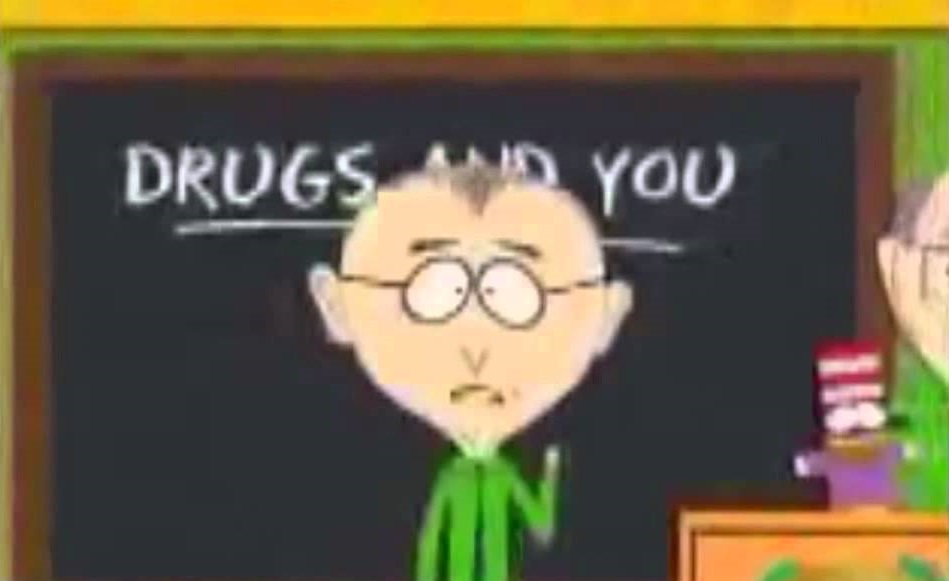“Drugs are bad, mmmmmkay?” goes the South Park joke. Mr. Garrison’s catchphrase satirises the near-total absence of thought that the Establishment has put into their anti-cannabis rhetoric. The idea is that drugs are bad, and cannabis is a drug, therefore cannabis is bad, and therefore cannabis prohibition is justified. As this article will examine, it’s not that simple.
The popular conception of what the word “Drugs” means is highly variable. Some people consider any foreign substance taken into the body to be drugs. Other people say that anything not prescribed by a doctor is drugs; once it is prescribed it magically becomes medicine. Still others contend that drugs are anything that are bad, and anything not drugs is good.
The kind of person who makes the argument that drugs are categorically bad is usually the sort of person who is obsessed with purity. Inevitably they are a wowser of some kind, and they fit into two categories: the first some kind of physical health freak, the second some kind of religious freak. Their belief is that cannabis disrupts physical and spiritual health, respectively.
The physical truth about many drugs, like most substances that one could put into the body, is that healthy and unhealthy use is a primarily a matter of dosage. The most obvious example is salt, where too much or too little will leave a person in poor health. Some might counter here that a lack of cannabis will not make someone sick, but that’s not true in many medicinal cases.
Another example is amphetamines. There are many amphetamines that are basically the same substance as what one finds in ADHD medicines – in other words. The major difference is that the crackhead takes it in much, much heavier doses than what a doctor would recommend.
A small amount of cannabis will not hurt a person, unless they are extremely sensitive to smoke or similar. In fact, a small amount might greatly help a person, especially if they suffer from one of the hundreds of different conditions that cannabis is known to treat. By the same token, smoking a hundred joints a day will be bad for you almost without a doubt.
In any case, the fundamental point is that this argument is misdirected. If a particular dose of a particular substance is bad, then don’t use it. It’s a simple as that!
It’s possible that a blanket admonition against drugs along the lines of “drugs are bad” is a good idea if you are a parent speaking to a ten-year old child. Someone without the mental sophistication to make good decisions might need it. But it’s no basis for a national law that governs young and old alike.
Adult citizens are not like children, and need to be spoken to honestly. The positive and negative effects of all drugs need to be spoken about honestly, and the citizens need to be informed with reference to reality and science. If this does not happen, then the risk arises that those citizens lose trust in doctors and Government officials, and then movements like the anti-vaxx one start to crop up.
Cannabis should not be illegal because “drugs are categorically bad”. This is a child’s logic, and it should not be informing the national cannabis policy. We need to move on from these simplistic thought patterns, because they do not describe the reality of the situation, and absent that people cannot make correct decisions.
*
This article is an excerpt from The Case For Cannabis Law Reform, compiled by Vince McLeod and due for release by VJM Publishing in the summer of 2018/19.

